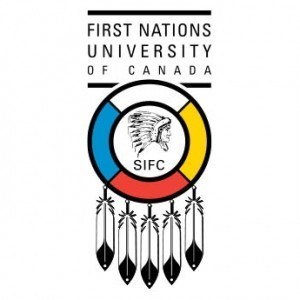Photos of university / #umanitoba
The Food Science program at the University of Manitoba offers students a comprehensive education in the science and technology of food production, processing, safety, and quality assurance. Designed to prepare graduates for diverse careers within the food industry, the program combines rigorous coursework with practical training to equip students with essential skills and knowledge. The curriculum covers a wide range of topics, including microbiology, chemistry, engineering principles, nutrition, and food safety management. Students will explore the fundamental principles underlying food preservation, processing techniques, and product development, gaining an understanding of how to innovate and improve food products while ensuring safety standards are met. The program emphasizes both theoretical foundations and hands-on laboratory experience, enabling students to apply scientific concepts to real-world challenges in the food sector. The university's state-of-the-art laboratories and industry partnerships provide opportunities for experiential learning, internships, and cooperative education placements, fostering strong industry connections and practical skills. Graduates of the Food Science program are well-prepared for careers in food manufacturing, quality assurance, research and development, regulatory agencies, and consulting services. They are equipped to contribute to the development of safe, nutritious, and sustainable food products that meet the evolving demands of consumers and industry standards. The program also encourages interdisciplinary collaboration, enabling students to work effectively in teams and communicate their findings clearly. With a focus on innovation, safety, and sustainability, the Food Science program at the University of Manitoba aims to develop leaders who will shape the future of the food industry and improve the quality of life through scientific advancements and responsible practices.
The Bachelor of Food Science at the University of Manitoba offers a comprehensive curriculum designed to prepare students for dynamic careers in the food industry. This program provides students with a solid foundation in the scientific principles underlying food production, processing, safety, and quality assurance. Throughout their studies, students engage with a diverse array of courses covering areas such as microbiology, chemistry, nutrition, and engineering, which are integral to understanding the complexities of food systems. The program emphasizes practical experience through laboratories, research projects, and industry internships, enabling students to apply theoretical knowledge to real-world scenarios. Students will explore topics including food safety management, food microbiology, sensory evaluation, and food engineering processes. The curriculum also includes training in modern analytical techniques used for food quality testing and contaminant detection. Additionally, students gain insights into regulatory policies, consumer preferences, and sustainability practices affecting the food industry. The program prepares graduates for roles in food manufacturing, quality assurance, research and development, regulatory agencies, and consultancy. With access to state-of-the-art laboratories and collaboration with industry partners, students are equipped with the skills and knowledge needed to innovate and improve food products, ensuring safety and quality for consumers. The Bachelor of Food Science at the University of Manitoba fosters a multidisciplinary understanding, critical thinking, and problem-solving skills essential for advancing food science and technology in a globalized marketplace.
Program requirements for the Bachelor of Science in Food Science at the University of Manitoba typically include the successful completion of a minimum of 120 credit hours, encompassing foundational coursework, specialization courses, and electives. Students are expected to complete core courses in areas such as food chemistry, microbiology, food process engineering, and food safety, which provide essential theoretical knowledge and practical skills. Additionally, the program emphasizes laboratory work, practical training, and internship opportunities to prepare students for careers in food production, quality assurance, research, and development.
Prerequisite courses often include introductory biology, chemistry, mathematics, and physics, ensuring students have a solid scientific background. Advanced coursework may involve food product development, sensory evaluation, food microbiology, and regulatory frameworks governing the food industry. To foster an applied understanding, students may undertake projects, workshops, and industry internships aligned with their career interests. The program also encourages participation in seminars and research initiatives to enhance learning and professional development.
Graduation requirements typically specify maintaining a minimum cumulative GPA, passing all required courses, and completing any mandated capstone projects or thesis components if applicable. Students are advised to consult academic advisors regularly to tailor their study plan according to their professional goals and ensure compliance with all academic and program-specific regulations. The curriculum is designed to prepare graduates for employment in various sectors such as food manufacturing, regulatory agencies, research institutions, and quality assurance organizations, equipping them with both theoretical knowledge and practical experience necessary for success in the food science industry.
Want to improve your English level for admission?
Prepare for the program requirements with English Online by the British Council.
- ✔️ Flexible study schedule
- ✔️ Experienced teachers
- ✔️ Certificate upon completion
📘 Recommended for students with an IELTS level of 6.0 or below.
The University of Manitoba offers various financial assistance options for students pursuing the Food Science program. These include entrance scholarships, in-course scholarships, bursaries, and awards based on academic achievement, leadership, and financial need. Prospective and current students are encouraged to explore these opportunities through the university's Financial Aid and Awards office, where detailed information about eligibility criteria and application procedures is available. Additionally, government-sponsored financial aid programs such as student loans and grants may be applicable to eligible students, providing essential support to help offset tuition fees and living expenses. The university also partners with various external organizations, industry partners, and alumni to offer specialized scholarships and bursaries specifically for Food Science students. Some funding opportunities are renewable annually, contingent on maintaining certain academic standards and involvement in university activities. International students pursuing Food Science can access different sets of funding options, including scholarships specifically designated for international students, though these are often limited and highly competitive. Students are advised to begin their financial planning early in their academic journey and to regularly check the university's official website for updates on new opportunities and deadlines. Payment plans and work-study programs may also be available, allowing students to gain work experience while earning income to support their studies. The university's Financial Aid office offers advising and resources to assist students in navigating their financial options and planning their budgets effectively throughout their academic career. Overall, the University of Manitoba provides a comprehensive support system designed to make Food Science education accessible and affordable for qualified students through a combination of merit-based aid, need-based funding, and external scholarships.
The Food Science program at the University of Manitoba is designed to provide students with a comprehensive understanding of the scientific principles and techniques involved in the production, processing, and safety of food products. This undergraduate program emphasizes a multidisciplinary approach, combining chemistry, biology, microbiology, and engineering to address the challenges faced by the food industry. Students enrolled in the program will explore topics such as food chemistry, food microbiology, food processing, quality assurance, and food safety management. The curriculum includes both theoretical coursework and practical laboratory experiences, preparing graduates for careers in food manufacturing, research and development, quality control, regulatory agencies, and consulting.
The program aims to equip students with the skills necessary to innovate in food production and improve food safety standards. It also emphasizes the importance of sustainable practices in food processing and the development of healthier food options. The university provides state-of-the-art laboratories and research facilities, fostering an environment where students can engage in hands-on learning and research projects. Opportunities for cooperative education (co-op) are available, allowing students to gain real-world work experience in the food industry before graduation.
Graduates of the Food Science program at the University of Manitoba are prepared to pursue careers in various sectors, including food manufacturing companies, government agencies, research institutions, and regulatory bodies. The program also offers pathways for graduate studies in food science or related fields, enabling students to continue their education and contribute to advancements in the field. The university's location and industry connections facilitate partnerships with local food industries, providing students with internships and employment opportunities. Overall, the Food Science program aims to develop highly skilled professionals capable of addressing global challenges related to food security, safety, and nutrition, contributing to the well-being of communities worldwide.



